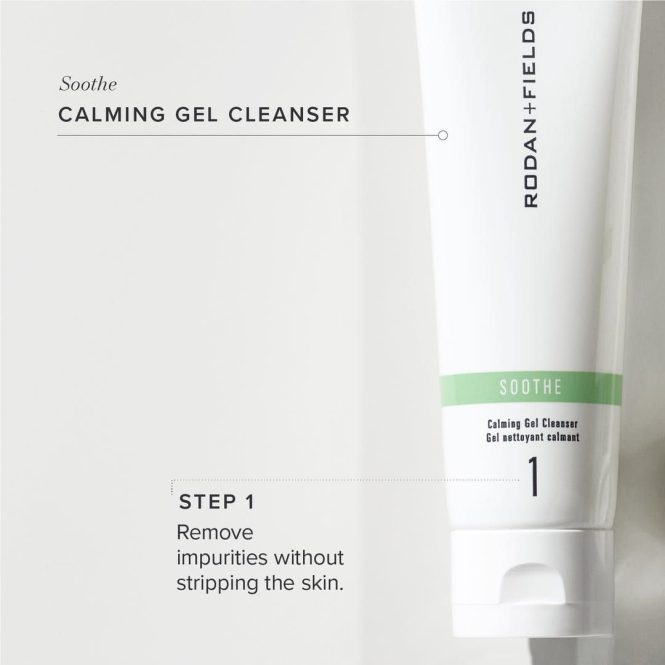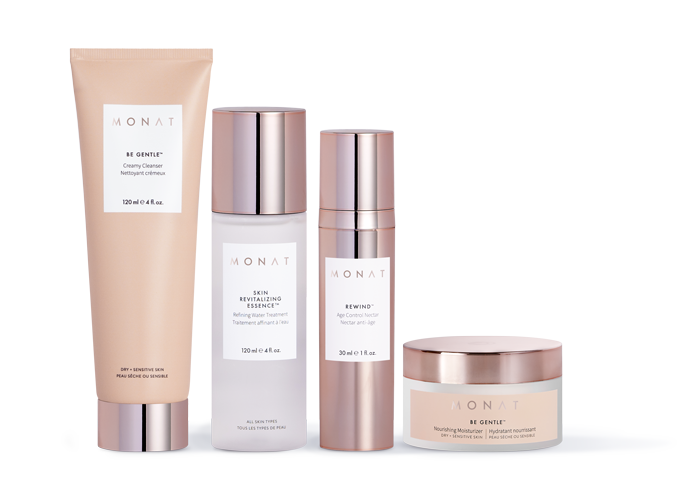

The sensitive skin struggle is real. Millions experience the frustration of finding a skincare routine that doesn’t exacerbate their delicate skin conditions. Sensitive skin is characterized by a variety of symptoms, including redness, irritation, dryness, and breakouts. This often makes finding the right products and routine a challenging and frustrating journey. This article explores effective strategies for creating a gentle skincare routine that truly calms and soothes sensitive skin, addressing the specific concerns of this unique skin type. We’ll delve into product selection, ingredient awareness, and consistent routines, along with tips for identifying your specific triggers. We’ll cover essential elements of a suitable routine, suitable products, and techniques for minimizing potential irritation and maximizing calming effects. Let’s dive in!
Understanding Your Sensitive Skin
Identifying the Triggers
Sensitive skin isn’t a one-size-fits-all condition. While some experience sensitivity to harsh chemicals, others may react to certain fragrances, essential oils, or even environmental factors. Understanding what triggers your skin’s reactions is the first step toward creating a calming routine. Consider keeping a skincare journal to track any unusual reactions. Paying close attention to the ingredients in your skincare products, such as preservatives and fragrances, can significantly affect your skin. Some common triggers for sensitive skin include:
- Harsh chemicals
- Certain fragrances
- Essential oils
- Environmental factors like cold weather or wind
- Harsh cleansers and soaps
- Ingredients like sulfates, alcohol, and retinoids
The journal can be a powerful tool to pinpoint these triggers and adapt your routine accordingly. Keeping meticulous records will help you pinpoint the potential culprits, like specific ingredients in products or environmental factors.
Recognizing the Symptoms
Recognizing the symptoms of sensitive skin is crucial. Symptoms can vary from person to person but commonly include redness, stinging, itching, burning, and dryness. Additionally, sensitive skin can be prone to breakouts or rashes in response to triggers. Knowing these early warning signs allows you to adjust your approach to skincare and choose products designed for your specific sensitivities. The proactive approach of recognizing symptoms helps you tailor your routine to avoid exacerbating the issue.
Choosing the Right Products
Selecting Gentle Skincare Ingredients
When selecting skincare products for sensitive skin, prioritize ingredients known for their calming and soothing properties. Look for products with a focus on natural ingredients that are less likely to irritate the skin. Ingredients like aloe vera, chamomile, and shea butter are excellent choices. Products containing ingredients like vitamin E, hyaluronic acid, or ceramides can help moisturize and restore the skin’s protective barrier. Avoiding harsh chemicals, fragrances, and alcohol is paramount. Prioritize natural, unscented, or hypoallergenic options. Also, read the labels of skincare products and familiarize yourself with the ingredients. If you’re unsure about a specific ingredient, consult a dermatologist or skincare professional.
Creating a Gentle Cleansing Routine
Gentle cleansing is crucial for sensitive skin. Opt for a mild cleanser that effectively removes impurities without stripping the skin’s natural oils. Look for cleansers with creamy or gel textures, avoiding harsh scrubbing or vigorous washing. Consider using lukewarm water instead of hot water. Hot water can further irritate sensitive skin, leading to further discomfort. A mild, creamy cleanser will effectively remove dirt and makeup without disrupting the skin’s natural moisture balance. Gently massage the cleanser onto your skin in circular motions, and rinse thoroughly with lukewarm water. Avoid harsh scrubbing and rubbing.
Establishing a Calming Routine
Incorporating Hydration
Hydration is essential for sensitive skin. Moisturizers are key to maintaining a healthy skin barrier and preventing dryness or irritation. Look for moisturizers formulated for sensitive skin, avoiding products with strong fragrances or harsh ingredients. Use a moisturizer with ceramides to help maintain your skin’s protective barrier. A hydrating face mist can be beneficial for refreshing your skin throughout the day and providing additional hydration. Consistency is key; apply moisturizer regularly, even after cleansing. Skin hydration maintains a healthy moisture balance.
Addressing Specific Concerns
Addressing specific concerns, such as redness, dryness, or breakouts, is essential. If you experience redness, consider using products with anti-inflammatory ingredients like green tea extract or aloe vera. For dry skin, opt for moisturizers with hydrating ingredients like hyaluronic acid. For breakouts, choose products formulated for acne-prone skin while keeping sensitive skin in mind. Be patient and persistent in your approach to addressing particular skin concerns.
Building a Supportive Routine
Gradual Introduction
Introduce new products gradually to your routine to identify potential reactions. Start by incorporating one new product at a time, waiting a few days to observe any adverse reactions before adding more. This methodical approach minimizes the risk of triggering a flare-up. Monitor your skin for any signs of irritation or discomfort. Identify any potential irritants quickly.
Incorporating Self-Care Practices
Beyond skincare products, incorporate practices that support a calmer complexion. Stress management, sufficient sleep, and a healthy diet contribute to overall skin health. These self-care habits contribute to a healthier overall you. Proper sleep ensures cellular repair, crucial for a healthy skin barrier. A balanced diet provides essential nutrients that promote a healthy skin complexion. Stress management techniques can also help reduce the impact of stress hormones on your skin.
Seeking Expert Guidance
Consulting a Dermatologist
If your sensitive skin concerns persist or worsen despite implementing a gentle routine, consulting a dermatologist is crucial. A dermatologist can provide a proper diagnosis and personalized recommendations for treatment and products. Dermatologists can often recommend treatments specifically tailored to your skin type and individual needs. Consider scheduling a consultation with a dermatologist.
Following Professional Recommendations
Thoroughly follow the recommendations and instructions provided by your dermatologist. This will help in maintaining the effectiveness and health of your skin. The recommendations often outline which products to use and the appropriate frequency of application, helping you maintain and improve the overall health of your skin.
FAQ
What are some common mistakes to avoid when caring for sensitive skin?
One frequent mistake is using harsh cleansers or scrubbing vigorously. This can lead to further irritation and damage the skin barrier. Using products with strong fragrances or harsh chemicals can also irritate your skin. Another error is neglecting hydration; moisture is critical to maintain a healthy skin barrier. Being inconsistent with your routine can also significantly impact your skin. Using harsh toners or acids without consulting a professional can also be problematic.
How can I identify my sensitive skin triggers?
Keeping a skincare journal is a powerful tool. Note every product you use, including the ingredients. Pay close attention to when and where you experience skin sensitivity. This can pinpoint patterns like when breakouts happen, whether it’s after certain activities, or when wearing certain clothes. Consider what time of year or environmental elements may be connected to your skin issues. A journal can often illuminate the triggers.
In conclusion, navigating the sensitive skin struggle requires a delicate approach. Understanding your skin’s unique needs, choosing gentle products, and practicing patience are key to achieving a healthy and happy complexion. Remember to consult a dermatologist if your skin concerns persist. By following these steps and staying committed to a consistent routine, you’ll be well on your way to finding a truly calming skincare regimen that suits your skin type and addresses your specific concerns. Explore the world of gentle skincare today!